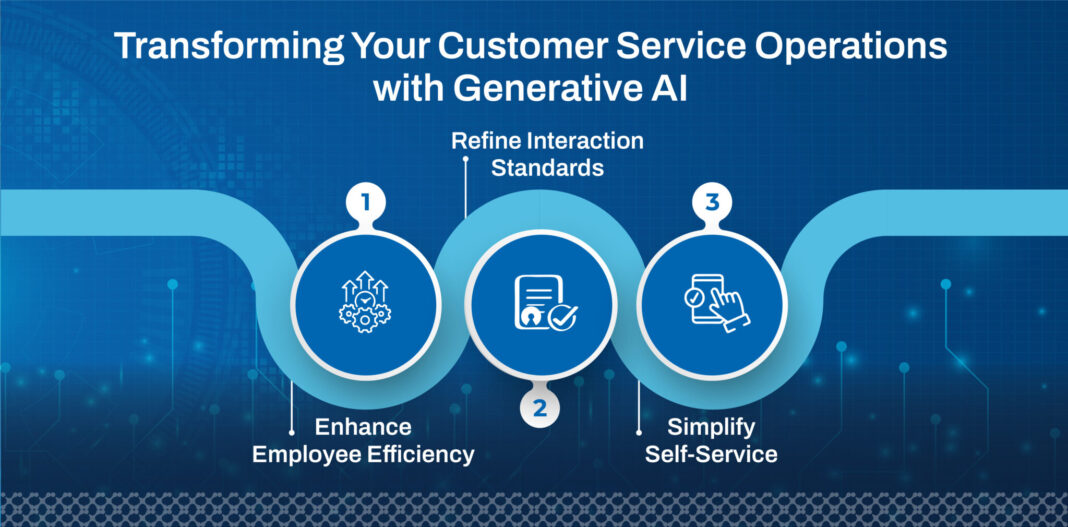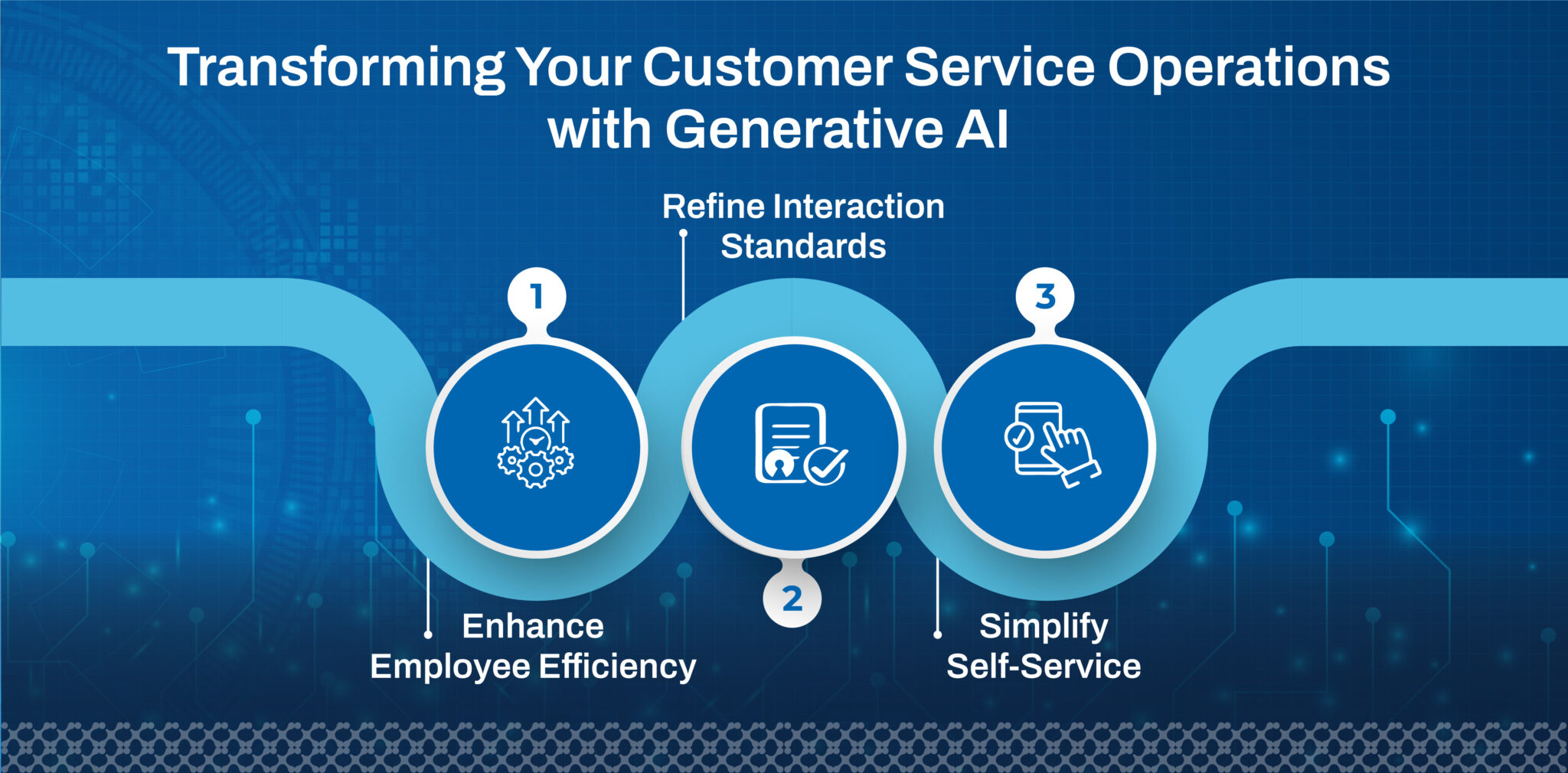
In recent years, Generative AI has emerged as a revolutionary force in the business world, driving automation and enhancing efficiency across various industries. This technology, which involves using AI to generate text, images, music, and other forms of content, is transforming how businesses operate by streamlining processes, reducing costs, and fostering innovation. This article explores the profound impact of Generative AI on business operations, highlighting its role in automation and efficiency.
Understanding Generative AI
Generative AI refers to a subset of artificial intelligence that focuses on creating new content. Unlike traditional AI, which analyzes existing data to make predictions or decisions, Generative AI uses algorithms to produce novel outputs. This technology encompasses various techniques, including natural language processing (NLP), computer vision, and deep learning. One of the most notable applications of Generative AI is in creating human-like text, images, and videos, which has far-reaching implications for business operations.
Automation Through Generative AI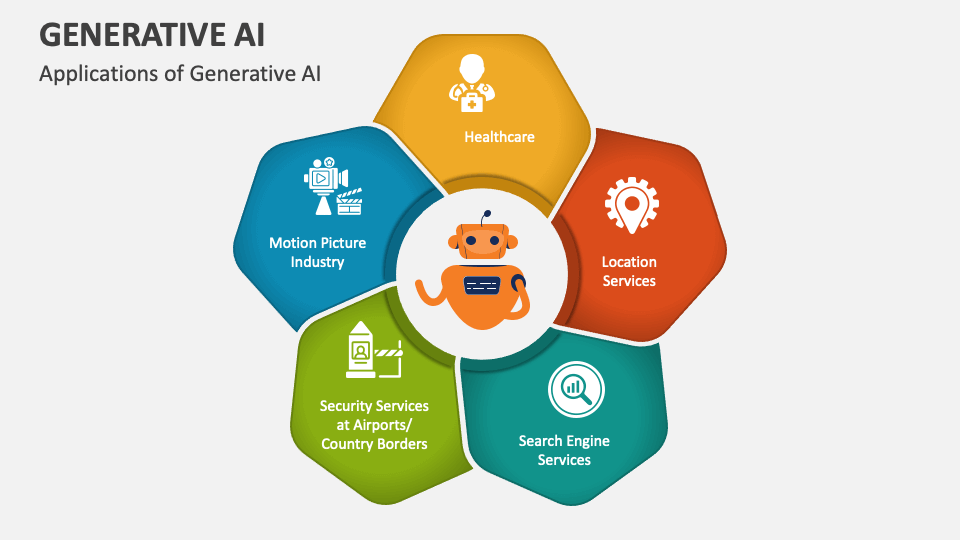
Content Creation
Generative AI has revolutionized content creation, making it possible to produce high-quality content at scale. Businesses can leverage AI-powered tools to generate articles, blog posts, marketing copy, and social media content. This automation reduces the time and effort required for content production, allowing marketing teams to focus on strategy and creativity. For instance, AI-generated content can be tailored to specific audiences, improving engagement and conversion rates.
Design and Creative Work
In the realm of design, Generative AI is automating tasks such as graphic design, video editing, and animation. AI-powered design tools can generate logos, banners, and even complete website layouts based on user inputs and preferences. This not only speeds up the design process but also ensures consistency and quality. Moreover, AI can assist in creating personalized visual content for marketing campaigns, enhancing brand identity and customer experience.
Customer Service
Generative AI is transforming customer service by enabling the creation of intelligent chatbots and virtual assistants. These AI-powered agents can handle a wide range of customer inquiries, providing instant and accurate responses. By automating routine customer interactions, businesses can reduce the workload on human agents, allowing them to focus on more complex issues. This leads to faster response times, improved customer satisfaction, and cost savings.
Enhancing Efficiency with Generative AI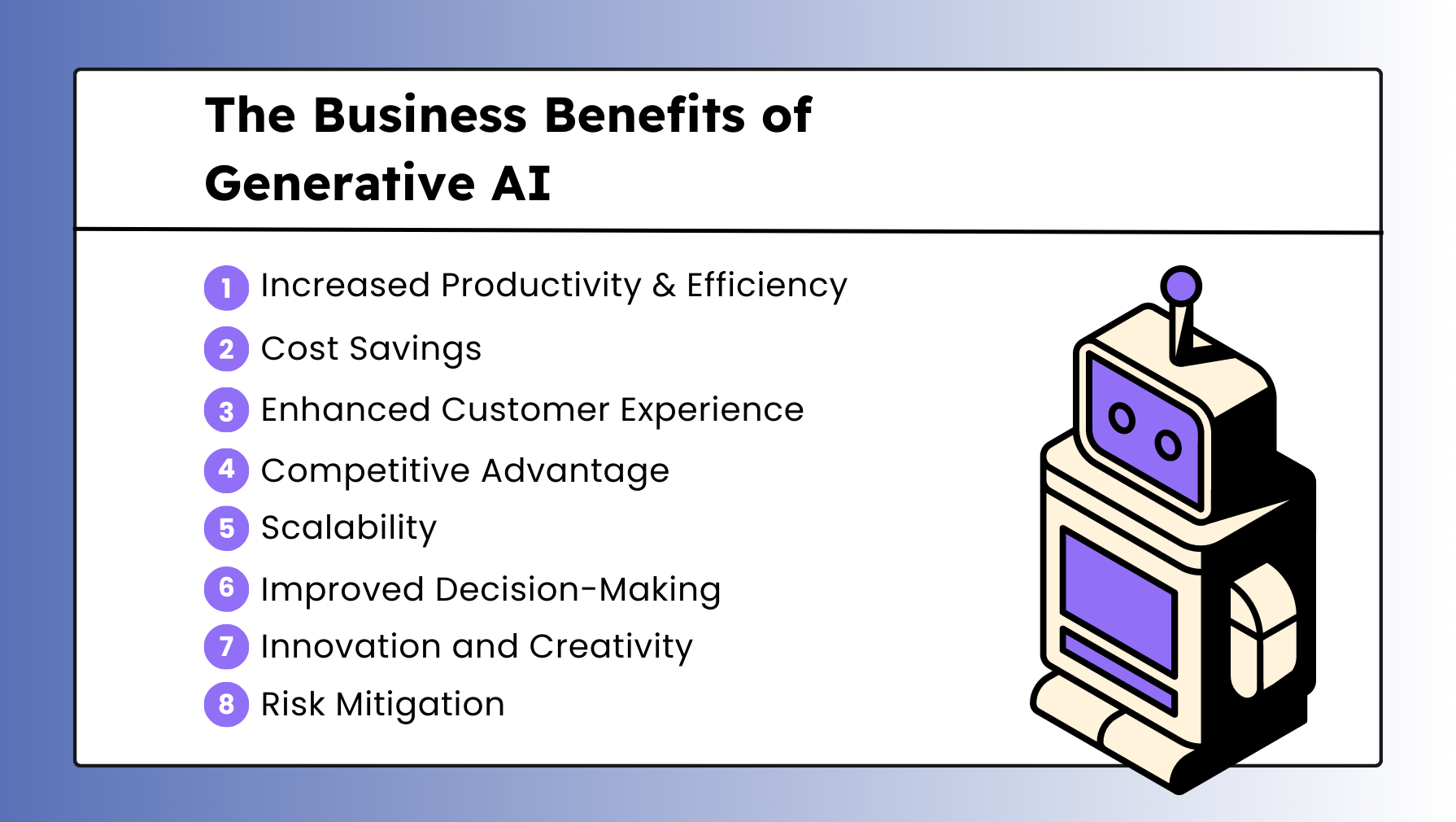
Process Optimization
Generative AI plays a crucial role in optimizing business processes. By analyzing vast amounts of data, AI algorithms can identify patterns and inefficiencies, suggesting improvements. For example, in manufacturing, AI can optimize production schedules, predict maintenance needs, and reduce downtime. In logistics, AI can enhance route planning and inventory management, leading to cost savings and faster delivery times.
Decision Support
AI-generated insights and recommendations are empowering businesses to make more informed decisions. Generative AI can analyze market trends, customer behavior, and competitive data to provide actionable insights. This helps businesses develop effective strategies, forecast demand, and identify new opportunities. By leveraging AI for decision support, companies can respond quickly to market changes and stay ahead of the competition.
Personalization
Generative AI enables businesses to deliver highly personalized experiences to their customers. By analyzing customer data, AI can generate personalized recommendations, product suggestions, and marketing messages. This level of personalization enhances customer engagement and loyalty. For instance, e-commerce platforms can use AI to recommend products based on individual preferences and browsing history, increasing the likelihood of purchase.
Challenges and Considerations
While Generative AI offers numerous benefits, businesses must also address certain challenges and considerations:
Data Privacy and Security
The use of AI involves collecting and analyzing large amounts of data, raising concerns about data privacy and security. Businesses must ensure compliance with data protection regulations and implement robust security measures to safeguard sensitive information.
Quality Control
Automated content and design generation may sometimes result in errors or inconsistencies. Businesses need to establish quality control processes to review and refine AI-generated outputs to maintain high standards.
Ethical Concerns
The deployment of Generative AI also raises ethical questions, such as the potential for job displacement and the misuse of AI-generated content. Businesses should adopt ethical guidelines and practices to mitigate these risks and ensure responsible AI usage.
Conclusion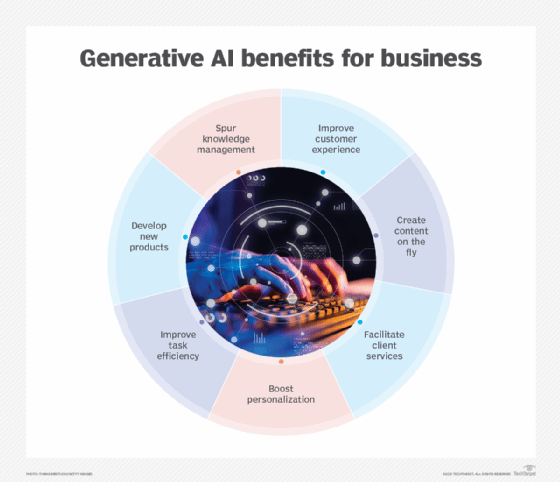
Generative AI is transforming business operations by driving automation and enhancing efficiency. From content creation and design to customer service and process optimization, AI-powered tools are revolutionizing how businesses operate. By leveraging Generative AI, companies can streamline processes, reduce costs, and deliver personalized experiences to their customers. However, it is essential for businesses to address challenges related to data privacy, quality control, and ethics to fully harness the potential of Generative AI. As this technology continues to evolve, its impact on business operations will only grow, paving the way for a more efficient and innovative future.


